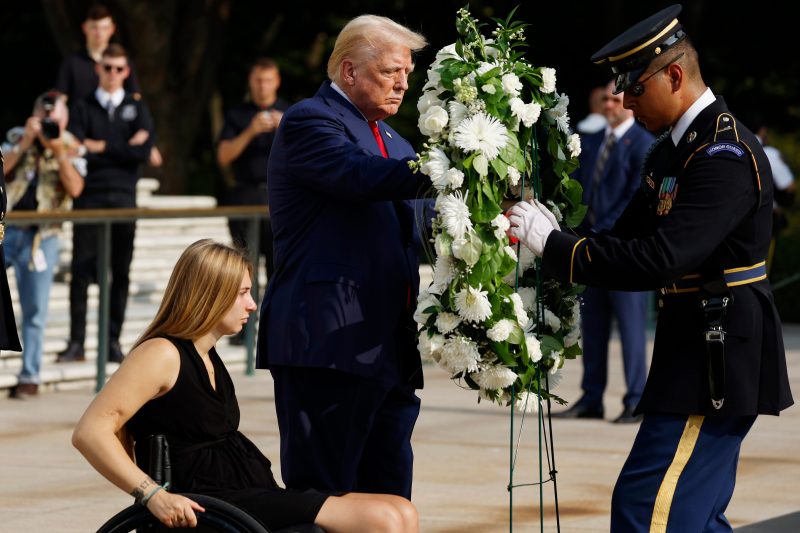In the fast-paced world of politics, the topic of military strength is always a hot button issue. Recently, former President Donald Trump and current Vice President Kamala Harris have been actively vying for the limelight on this very topic. Both politicians are ardent advocates for a robust military, but their approaches and perspectives differ significantly.
Former President Trump, known for his America First mantra, prioritized boosting the military budget and investing heavily in defense technology during his time in office. He championed a tough stance on foreign policy and frequently emphasized the importance of projecting strength on the global stage. Trump’s supporters lauded his unwavering commitment to military supremacy, citing his efforts to reinforce relationships with key allies and adversaries alike.
On the other hand, Vice President Harris has taken a more nuanced approach to the issue. She has emphasized the importance of diplomacy and multilateral cooperation in enhancing national security. Harris has advocated for strategic alliances and partnerships to address common security challenges while also focusing on modernizing the military to adapt to evolving threats and technologies. Her supporters applaud her emphasis on a holistic security strategy that acknowledges the interconnected nature of global challenges.
The contrast between Trump and Harris’s approaches to military strength reflects a broader debate within the political landscape. While some argue for a more traditional, hard-power approach centered on military might, others advocate for a more diplomatic and cooperative strategy that leverages soft power and alliances. The competing visions of Trump and Harris underscore the complexity of the modern security landscape and the need for a multifaceted approach to addressing security challenges.
As both politicians continue to jockey for advantage on the issue of military strength, it remains to be seen how their differing approaches will shape the future of U.S. national security policy. Whether through increased defense spending and technological innovation or through diplomatic engagement and alliance-building, the question of how best to ensure national security in an uncertain world will continue to be a key point of contention in the political arena.

